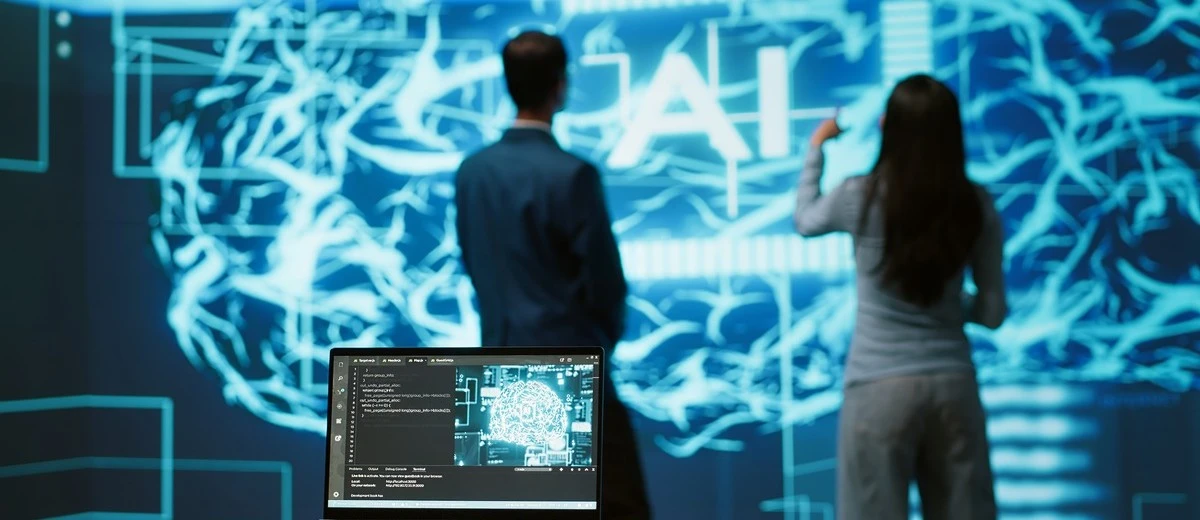AI in Electronics: Transforming the Industry


Artificial Intelligence (AI) is the key force driving many sectors including electronics. Integrating AI into electronics is changing how a device performs, communicates, and interacts with the world. This blog will reveal how AI is contributing to the electronics industry through this insight. It will start with improving device competence, which will be the basis for new technological advancements.
AI has a noticeable influence on electronics in the growth of smart devices. We see this in smartphones, smartwatches, and smart home appliances. AI makes these gadgets work better and easier to use. It adds features like voice recognition, image processing, and predictive text. This means our devices understand us better and are more user-friendly. AI isn’t just making our gadgets better—it is changing the game in industrial electronics too. Robots and automated systems powered by AI are showing up more and more in factories. They’re cutting down on human mistakes, boosting productivity, and saving money. This move towards automation means we’re seeing smarter factories and production lines that run more efficiently.
AI changes how we communicate, making it better and more dependable. It uses advanced algorithms to optimise network traffic, spot problems before they happen, and make signals clearer. This matters a lot now with 5G and newer technologies, as users demand superfast connections with no delays. AI powers smart virtual assistants and chatbots in the telecom world. These tools handle customer questions and support better than before. They boost customer service quality and take some work off human staff’s plates. Companies use AI to make these assistants smarter, so they can deal with more complex issues. This technology helps telecom firms serve customers faster and more efficiently. It’s changing how people interact with their phone and internet providers. AI assistants work 24/7, offering customers help whenever they need it. This shift towards AI-driven support is a big deal in the telecom industry, making customer care more responsive and less frustrating for users.
AI also plays a significant role in handling the tonnes of data generated by connected devices on the Internet of Things (IoT). Smart algorithms analyse this data as it comes in, giving useful insights and facilitating better decision-making. For example, in smart homes, AI can figure out what people living there do and tweak the lights, heat, and security to match their habits. AI-powered IoT devices also have a substantial impact on industrial environments, monitoring machinery and equipment to predict maintenance needs and prevent breakdowns. This predictive approach reduces downtime. It also makes the equipment last longer. As a result, companies save a lot of money. The devices watch over machines all the time. They spot issues before they cause bigger problems. This helps keep production going. It’s a smart way to take care of equipment. Factories and plants benefit from this technology. It’s changing how they handle maintenance. Instead of fixing things when they break, they fix them before issues start. This new method is more efficient and cost-effective.
Embedded systems power many electronic gadgets, and AI boosts their capabilities. Engineers can add AI algorithms to embedded systems. This addition allows for advanced features such as face ID, voice processing, and autonomous driving. Take self-driving cars, for instance; they rely on AI-powered embedded systems. These systems handle sensor data and make rapid driving choices. AI also has a significant impact on healthcare. It helps create smart medical devices. These tools keep an eye on patient health and give custom treatments. The combination of AI and embedded systems opens up new possibilities. It makes our devices smarter and more useful. From cars to medical gadgets, AI is changing how things work. As technology moves forward, we can expect even more innovative applications of AI in embedded systems.
While integrating AI into electronics offers numerous benefits, it also presents challenges. The complexity of AI algorithms requires significant computational power, which can be a limiting factor for some devices. Additionally, ensuring the security and privacy of AI-driven systems is crucial, as these systems often handle sensitive data. Despite these challenges, the opportunities presented by AI in electronics are immense. Continued advancements in AI technology are likely to lead to even more innovative and transformative applications in the field of electronics. From improving everyday consumer devices to revolutionising industrial processes, AI is set to shape the future of the electronics industry. The integration of AI into electronics is transforming the industry in profound ways. From enhancing the functionality of smart devices to optimising communication systems and enabling intelligent IoT solutions, AI is driving innovation and efficiency. As AI technology continues to evolve, its impact on the electronics industry will only grow, opening up new possibilities and shaping the future of technology.
Authored By

Dr. Pooja Sabherwal
Associate Professor- Department of Multidisciplinary Engineering
Department & Programme Coordinator (BTech ECE)
